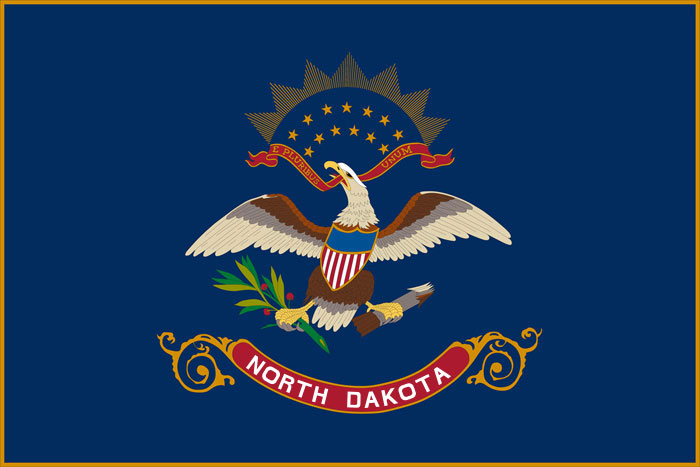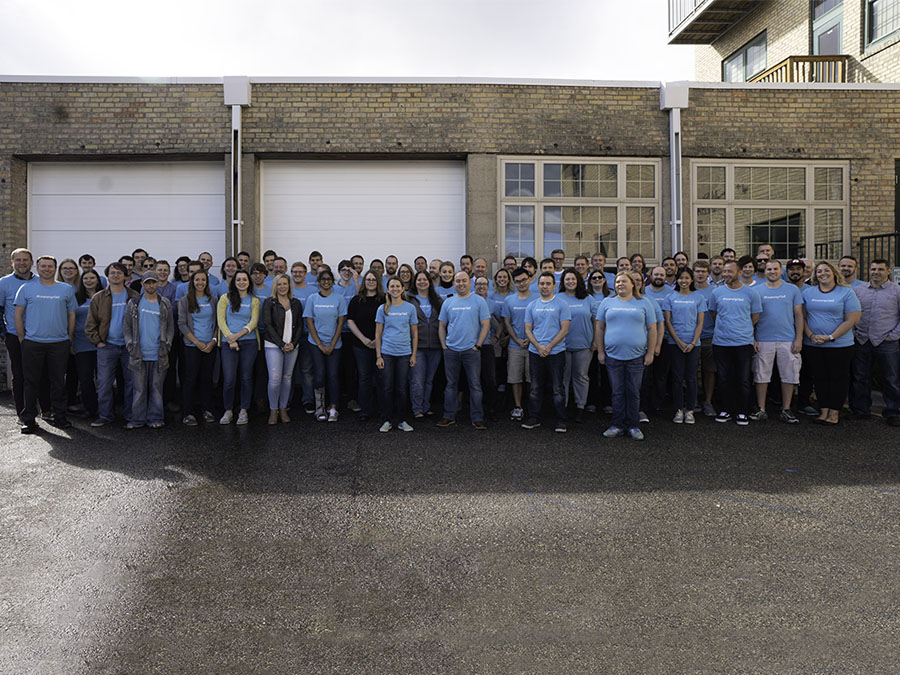The benefits of international contacts
Our world has undoubtedly become more connected with advancing technology. Is your community or business taking advantage of resources available to you? The Consulate General of Canada’s office is one such entity that has proven valuable to North Dakota companies that have worked with them. Read on to learn more.
What services does the Consulate General of Canada’s office provide to residents and business owners in North Dakota?
Businesses, trade associations and research institutions in North Dakota can benefit from a relationship with the Trade Commissioner Service at the Consulate General of Canada. Whether you wish to source components or ingredients from Canada, partner with Canadian companies, or are looking to make Canada your next investment destination, our trade commissioners provide expert advice, creative solutions, referrals, and problem-solving skills, at no cost to you.
Tell us about some recent projects that illustrate the role you play.
Canada is North Dakota’s largest trading partner, and there are numerous cross-border business links across a wide variety of sectors. Our trade commissioners can help to connect the dots, as described by the two examples below:
- A U.S. foods corporation, looking to transition from export-driven international business to strategic in-country partnerships, sought assistance to understand growth opportunities in Canada in the realms of snack, organics and innovation. The Agri-Food Trade Commissioner at the Consulate General of Canada in Minneapolis developed a tailored tour for the corporation in Ontario and Quebec. The tour consisted of 16 business-to-business meetings with vetted companies; discussions with government experts; and tours of food processing facilities. The deep-dive visit elevated the company’s awareness of the extensive partnering prospects with Canadian manufacturers and revealed Canada-specific trends where the company’s marketing and production expertise could provide a win-win for the U.S and Canadian industries.
- An oil spill in North Dakota required farmland remediation. The Clean Technologies Trade Commissioner at the Consulate General of Canada in Minneapolis connected state regulators and company officials to a Canadian company with decades of experience cleaning and remediating soil for the oil industry, brownfield redevelopment, petrochemical, utilities and mining. As the world’s fifth-largest producer of oil and natural gas, Canada is an important hub for innovation in the sector.
What is the best way to learn about potential collaborative opportunities with your office?
Be in touch! This link will take you to a list of the Trade Commissioners at the Consulate General of Canada, and our sectors of expertise. To learn more about Canada’s strengths and sector advantages, visit this link. We are looking forward to working with your firm.
Please share your perspective on the importance of our countries working together.
Canada is North Dakota’s most important trade and investment partner and your top customer, purchasing 82.4 percent of all North Dakota exports – more than all other countries combined. Canadian travelers make 677,000 visits to North Dakota, spending $160 million in the state, annually. Some 28,500 jobs in North Dakota depend on trade and investment with Canada. Canada is the largest supplier of oil to the United States, and North Dakota’s top export to Canada by far is crude oil, reflecting the integrated nature of this sector. Canada’s biggest pipelines cross the border at North Dakota, bringing over 3 million barrels per day of oil to the United States.
Canada is also invested in North Dakota. Atlantic Canada-based Cavendish Farms, a grower and packer of quality fresh potatoes for retail and food service markets, owns and operates a 15,000-acre potato farm and processing plant in Jamestown, employing 225 North Dakotans. AGT Foods USA, an affiliate of Canada-based AGT Food and Ingredients, employs North Dakotans at its processing plants in Minot and Williston and its office in Bismarck, and buys pulses from more than 1,000 farmers in North Dakota and four other states.
Canada shares more than a long border with the United States – our two counties participate in joint stewardship of immense natural resources, a shared commitment to democracy and a long history of military co-operation. Over 200 million people and billions of dollars of goods and services cross the Canada-U.S. border every year, helping to maintain the economic prosperity, security and quality of life for the people in both countries. This relationship of free and fair trade, all facilitated by NAFTA, boosts economic growth, benefits consumers, and creates jobs for thousands of households in North Dakota and millions more across the county.
To underscore the importance of the Canada-North Dakota relationship, Canada’s Minister of Infrastructure, Amarjeet Sohi, was recently in Bismarck, together with staff from the Consulate General of Canada, to discuss our intertwined economies and JAFTA renegotiation with the Chambers and agricultural commodity groups. According to the U.S. Chamber of Commerce, North Dakota would be one of the most negatively affected states if the U.S. withdraws from NAFTA.
Are there areas that make sense for Canada and North Dakota to work together that can benefit both economies?
There are many areas where working together can be mutually beneficial. We have already noted the potential related to trade and investment. It is also important to highlight STI (science, technology and innovation), tech transfers or partnerships, accessing innovative processes, and how integrated supply chains can offer great potential for companies.
For example, at the 2018 Williston Basin Petroleum Conference in Bismarck, Governor Burgum spoke about the excitement in the Bakken, the exceptional production levels that were being achieved, and how the Bakken was once again a strong economic driver for the state. One reason for this success, according to the Governor, is that oil companies have continued to innovate to reduce the cost of extracting the oil from the ground. As a result, extraction is now profitable at a much lower cost per barrel.
The work being done between the Petroleum Technology Research Centre in Saskatchewan and the Energy and Environmental Research Center in Grand Forks across many technology areas including CO2 capture and storage is a great example of this. This binational collaboration has fostered new approaches that serve to enhance success in the Bakken on both sides of the border.
There are other areas in the extractive industries where innovation collaboration can improve efficiencies, such as with remote asset management. Canada has long been a leader in this technology, wherein instrumentation at an oil well is tied to a cloud-based software solution. Data from the well is analyzed and transmitted from the remote locations into the cloud-based software, allowing the operator to make important business decisions about the operation of the asset, even while off site. Utilization of this technology is somewhat limited in the Bakken in part due a shortage of trained technicians. Perhaps there are ways by working with institutions in both countries that effective solutions to this problem can be found, which could drive the cost of extraction to even lower points.
Areas for this type of collaboration exist, and we simply need to identify the right opportunities and bring contributors from both sides of the border together to address challenges and take advantage of opportunities.
Click here to read about the benefits of local contacts.
 An official website of the State of North Dakota
An official website of the State of North Dakota
